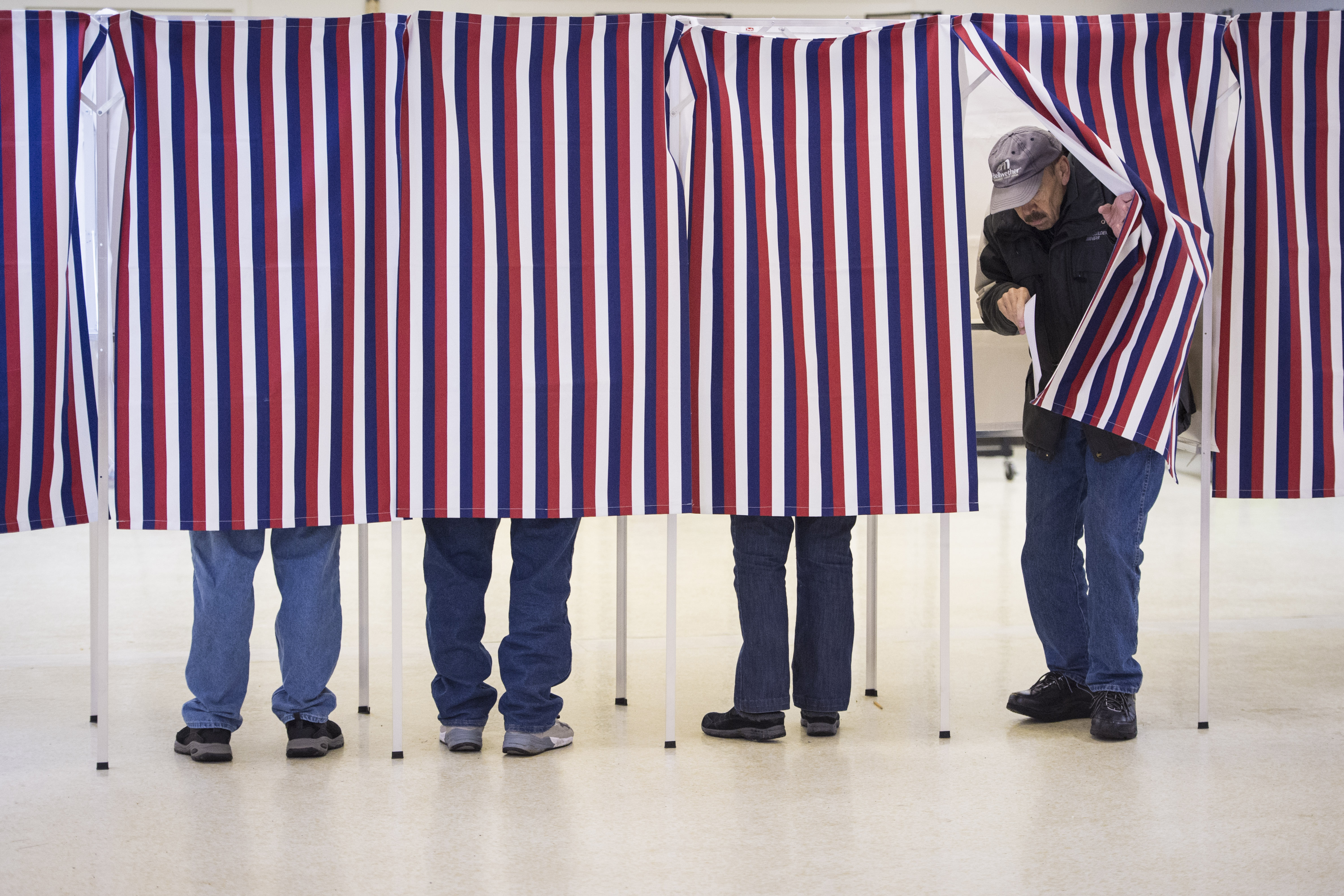
'Tis the season to confess error. For years I have argued -- to my students, to my readers and to lecture audiences -- that it's not rational to vote if your intention is to influence the outcome. Following the lead of the late economist Gordon Tullock, I've challenged them to come up with an example of an election where a single vote made the difference. No one has offered an answer.
Small wonder. The odds against one vote affecting the outcome, even in a local election, are enormous. Thus, as I've always explained, if I happen to skip an election or two -- or all of them until the day I die -- the world of politics will not be altered by a millionth of a millimeter.
But maybe it's time to rethink that, because we now have a tie. In the race to represent the 94th District in the Virginia House of Delegates, Democratic candidate Shelly Simonds and Republican incumbent David Yancey are tied, at 11,608 votes each. In the Election Day count, Yancey was ahead by 10 votes. A recount put Simonds ahead by one. A panel of judges then awarded a disputed ballet to Yancey. At stake is the Republican Party's 17-year dominance of the state Legislature.
An election so close is rare but not unheard of. A 2002 paper by economists Casey B. Mulligan and Charles G. Hunter analyzed 16,577 elections for the U.S. House of Representatives between 1898 and 1992 and found only one contest, in nearly a century, that was decided by a single vote. (According to the authors' calculations, the likelihood that a single vote will be pivotal in a congressional election is about 1 in 89,000.) When they studied state legislative elections, they found nine more.
Close elections are a problem. Landslides create hubris, but when the outcome rests on a handful of votes, one side is bound to think it's been robbed. There's no way to fix this. If Smedley beats Smithers by 100 votes, and a recount shows Smithers up by 50, Smedley's people will be furious.
They'll demand to know why the new count is more to be trusted than the old. Should we do two out of three? Five out of nine? The loser will never be satisfied. Lots of Republicans still think Norm Coleman beat Al Franken in Minnesota's 2008 Senate race, and lots of Democrats still think Al Gore rather than George W. Bush should have been awarded Florida's electoral votes back in 2000.
There's another reason to be skeptical of recounts. It turns out that we don't count votes terribly well. A 2012 study found that although some methods of tabulating ballots are better than others, we can generally expect an error rate of 1 to 2 percent.
Although we can't predict which way the errors will fall, it's unlikely that they will sum precisely to zero - in other words, there will always be mistakes. So each time we count, we can expect a different result. The defeated side's partisans will never believe the count was fair, and although they'll be right, their grumbling about the matter will affect their view of how well electoral democracy works. That can't be a good thing.
One way to avoid this difficulty would be to hold not a recount but a new election whenever the victor prevails by, say, less than one half of 1 percent. This admittedly expensive solution might yield a clearer outcome, should lots of those who stayed home the first time now see the virtue of turning out (or vice versa, one supposes).
An easier way to avoid the grumbling is perhaps harder: The candidate who is defeated on election night could simply accept the result, even in a very close race. The graceful concession by Republican incumbent Kelly Ayotte, who on election night in 2016 was declared to have lost her U.S. Senate seat in New Hampshire to Democrat Maggie Hassan by a bit over a tenth of a percentage point, provided a fine example that others might follow.
Ayotte would have been within her rights to demand a recount, and one was expected. Instead, she spared her state that ordeal, allowing Hassan to begin her term without any taint. By conceding, Ayotte strengthened rather than weakened democracy.
Meanwhile, back in the Virginia 94th, the next step is a random drawing. This might seem a bizarre way to break the tie, but it's what Virginia law prescribes, and election authorities have announced their intention to follow the rules. They plan to hold a drawing of lots shortly after Christmas Day.
Actually, we've been here before. In 1994, a state legislative race in Wisconsin ended in a tie. Republican Randall Luthi was declared the victor over independent Larry Call after a pingpong ball with his name on it was drawn out of a hat. The winner later called the outcome "democracy at its best." He was wrong, of course. But anything's better than counting the ballots again.
Comment by clicking here.
Stephen L. Carter is the William Nelson Cromwell Professor of Law at Yale, where he has taught since 1982. Among his courses are law and religion, the ethics of war, contracts, evidence, and professional responsibility. His most recent book is The Violence of Peace: America’s Wars in the Age of Obama (2011). He is an author and Bloomberg View columnist.


 Contact The Editor
Contact The Editor
 Articles By This Author
Articles By This Author